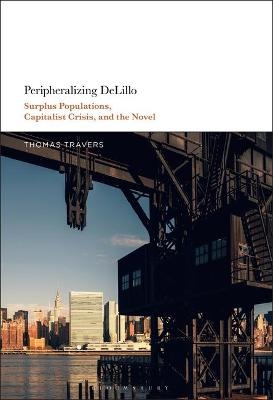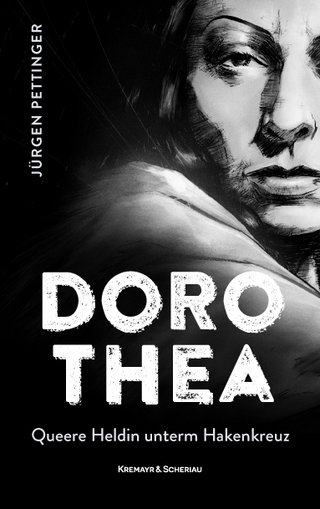
Peripheralizing DeLillo
Surplus Populations, Capitalist Crisis, and the Novel
Seiten
2022
Bloomsbury Academic USA (Verlag)
978-1-5013-7843-0 (ISBN)
Bloomsbury Academic USA (Verlag)
978-1-5013-7843-0 (ISBN)
Peripheralizing DeLillo tracks the historical arc of Don DeLillo’s poetics as it recomposes itself across the genres of short fiction, romance, the historical novel, and the philosophical novel of time.
Drawing on theories that capital, rather than the bourgeoisie, is the displaced subject of the novel, Thomas Travers investigates DeLillo’s representation of fully commodified social worlds and re-evaluates Marxist accounts of the novel and its philosophy of history. Deploying an innovative re-periodisation, Travers considers the evolution of DeLillo’s aesthetic forms as they register and encode one of the crises of contemporary historicity: the secular dynamics through which a society organised around waged work tends towards conditions of under- and unemployment.
Situating DeLillo within global histories of uneven and combined development, Travers explores how DeLillo’s treatment of capital and labour, affect and narration, reconfigures debates around realism and modernism. The DeLillo that emerges from this study is no longer an exemplary postmodern writer, but a composer of capitalist epics, a novelist drawn to peripheral zones of accumulation, zones of social death whose surplus populations his fiction strives to re-historicise, if not re-dialecticise as subjects of history.
Drawing on theories that capital, rather than the bourgeoisie, is the displaced subject of the novel, Thomas Travers investigates DeLillo’s representation of fully commodified social worlds and re-evaluates Marxist accounts of the novel and its philosophy of history. Deploying an innovative re-periodisation, Travers considers the evolution of DeLillo’s aesthetic forms as they register and encode one of the crises of contemporary historicity: the secular dynamics through which a society organised around waged work tends towards conditions of under- and unemployment.
Situating DeLillo within global histories of uneven and combined development, Travers explores how DeLillo’s treatment of capital and labour, affect and narration, reconfigures debates around realism and modernism. The DeLillo that emerges from this study is no longer an exemplary postmodern writer, but a composer of capitalist epics, a novelist drawn to peripheral zones of accumulation, zones of social death whose surplus populations his fiction strives to re-historicise, if not re-dialecticise as subjects of history.
Thomas Travers is an independent scholar based in the UK. He holds a doctorate in English Literature from Birkbeck, University of London, UK.
Introduction: ‘Breathing the Fumes of Free Enterprise Forever: Don DeLillo and Marxism
1. ‘Anticipating Martian Archaeologists’; Or, On the Contemporaneity of the Early Short Stories
2. ‘The Uncounted’: Romance, Realism, and Uneven Development in the Political Thrillers
3. Dialectics Derailed: Catastrophe and the Historical Novel
4. ‘Enfolded in the Will of Capital’: Twenty-First Century DeLillo
Conclusion: How to Survive a Dead Idea
Bibliography
Index
| Erscheinungsdatum | 14.01.2022 |
|---|---|
| Verlagsort | New York |
| Sprache | englisch |
| Maße | 152 x 229 mm |
| Gewicht | 490 g |
| Themenwelt | Literatur ► Romane / Erzählungen |
| Geisteswissenschaften ► Philosophie | |
| Sozialwissenschaften ► Soziologie ► Makrosoziologie | |
| ISBN-10 | 1-5013-7843-0 / 1501378430 |
| ISBN-13 | 978-1-5013-7843-0 / 9781501378430 |
| Zustand | Neuware |
| Haben Sie eine Frage zum Produkt? |
Mehr entdecken
aus dem Bereich
aus dem Bereich
deutsch-jüdische Lebensgeschichten
Buch | Hardcover (2024)
Wallstein Erfolgstitel - Belletristik und Sachbuch (Verlag)
48,00 €
queere Heldin unterm Hakenkreuz
Buch | Hardcover (2023)
Kremayr & Scheriau (Verlag)
24,00 €


